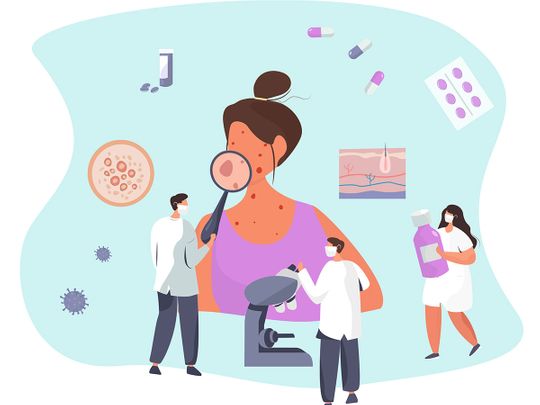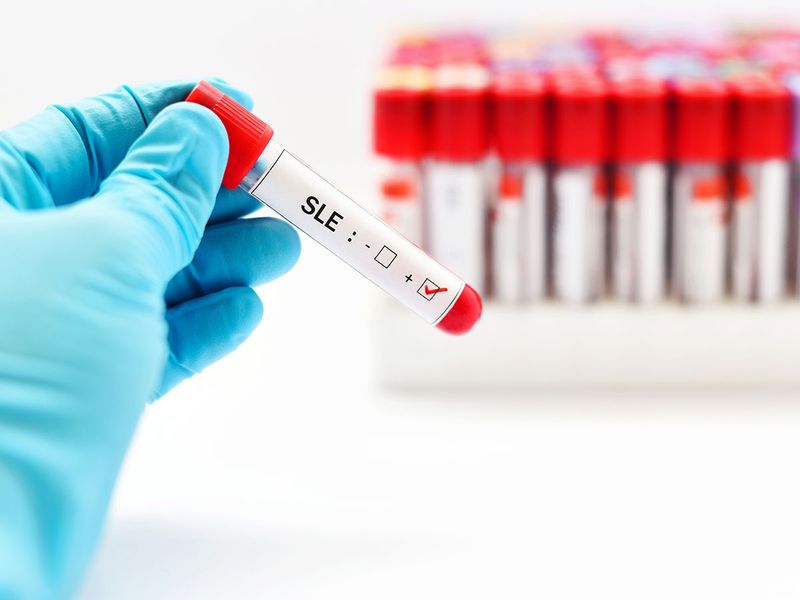
Stuff happens, says 23-year-old Alvira Khan, that’s no reason not to be happy.
Khan was in grade ten, approaching her exams when she was hospitalised for the second time in two years; that’s when she found out that she had an autoimmune disorder called systemic lupus erythematosus (SLE).
The diagnosis seemed incomprehensible the first time the family heard it; they kept asking the doctors – what does the term ‘autoimmune disorder’ mean? And what is ‘SLE’?
But let’s rewind to the exhausting incident that started it all. “I came back from vacation in my home country in ninth grade and once I did, between 10 and 15 days later I started falling sick. I used to get neck aches and headaches and fever. There was constant fever that was not coming down. So all these symptoms came in one go and then I collapsed,” says Khan in an interview with Gulf News.
After two-week stay in the hospital – one of which was spent in the intensive care unit – Khan was released with the diagnosis of meningitis. This is an inflammation of the protective membranes covering the brain and spinal cord, states US-based Centres for Disease Control and Prevention on its website. Her parents took her to India, where the hospital she was admitted to also discovered a blood clot in her brain, or cortical venous thrombosis; it took six months to dissolve.
A year to the day of this first hospital stint, she was back in a ward and discussing auto immune disorders – where the body’s immune system attacks its own cells. And Khan finally had a name for what was happening to her, the rashes, the fever: It was called SLE.
Medicine Plus, an online platform run by the United States National Library of Medicine, explains the condition as one where “… the immune system of the body mistakenly attacks healthy tissue. It can affect the skin, joints, kidneys, brain, and other organs.”

The Lupus Foundation of America estimates that at least five million people around the world have some form of lupus and 90 per cent of those affected are women.
Other symptoms can include sun sensitivity, oral ulcers, arthritis, lung problems, heart problems, kidney problems, seizures, psychosis, and blood cell and immunological abnormalities.
Source: CDC, US
It was this same year, Khan would need to give her 10th Central Board of Secondary Education board exams. “10th grade is a turning point in your life; I wasn’t in a state of mind to write any exam. I was sick. I couldn’t even hold a pen properly. I couldn’t recognise people. But the school had told me, ‘You have to give the exam, in person’ so my year wouldn’t get spoilt,” she says. As incredulous as her parents seemed, the thought of a goal seemed to revive Khan. “I just got motivation and then I came back and gave my exams in a medical room. My parents used to come with me. My parents would wait outside the medical room for one or two hours and then I would go home with them.”
In grade 11 there would be another hospitalisation, but she would manage to keep her school’s exam dates. Then in grade 12, the prognosis got worse.
5 million
people around the world have some form of lupus.
“In 2016, I was diagnosed with acute pancreatitis; I had symptoms like stomach aches. And with that I also got a condition called avascular necrosis of femur, which is a hip problem. Because of the long-term use of medicines, my hip was damaged,” she says.
Khan talks about it a matter-of-fact manner, glossing over the crippling pain. She says once this bout of clinical care had been dealt with, she remained (mostly) symptom free – and out of hospital – for the next three years. In 2020, however, she was re-admitted. “I had high fever and rashes on my hands,” she shrugs.
Today, Khan, who has done her undergrad from a university in Dubai, says she is rash free. “I’ve been taking injections, so I’m lowering my dose of medicines, which is helping me with avascular necrosis of femur,” she says. “I can’t walk properly, but it’s okay.”
Source: John Hopkins Medicine, US
“At this moment I’m really happy … it’s like a lesson [her journey] that you should face the reality of life, you should value your life. You shouldn’t take it for granted,” she says.
For others who may find themselves suffering from a chronic ailment, she says, “Stay as happy as you can. I know you have to suffer a lot, you have to go through many things, but still you should still keep yourself happy.
“You may be sick, but you should be strong enough and have the courage to deal with the disease. You should just say to yourself, ‘No I will be happy. I will be positive’. And you have to accept it. If you have an auto immune disease, it can be healed; it’s not like you can’t live your life normally. Don’t think about what you can’t do, focus on what you can. It becomes like a part of your body … you just have to take care of it,” says Khan.
She adds that without familial support, the road would have been much, much harder. “My family supported me a lot – they were there every single time when I was suffering from any condition. Even my friends, there were also there with me. Everyone understands. I was hesitating to tell people about it; I used to hide it from them, thinking they might not come near me, but no. People understood it and they also took good care of me. So it’s like the environment that I had was very supportive,” she says.
The lens you use to look at life is one of the most important you’ll ever wear for the circumstances may not change but your perspective can keep you calm and happy.
Have a story to share? Write to us at parenting@gulfnews.com








